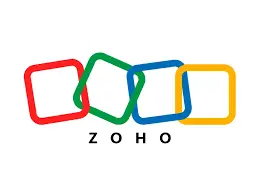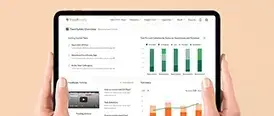Selecting the right accounting software tailored to your specific needs is essential for businesses in the food and beverage sector. This guide will assist you in choosing the ideal solution, focusing on features and functionalities designed for the industry.
What Is Accounting Software for Food and Beverage Businesses?
Accounting software for food and beverage businesses is a specialized tool designed to help manage financial operations, including invoicing, expense tracking, inventory management, payroll, and reporting, tailored to the industry’s unique needs.
Top 5 Accounting Software for Food and Beverage Companies.

1. FoodReady AI
Pricing: Contact FoodReady for more information
Platforms supported: Web, iOS, and Android
Why use FoodReady AI?
FoodReady accounting software offers food and beverage businesses a solution, combining financial management with essential compliance and safety features.
FoodReady AI Features:
- Industry-Specific Solution – Explicitly tailored for the food and beverage industry, addressing unique challenges and regulatory requirements.
- User-Friendly Interface – Intuitive and easy-to-use interface, ensuring quick adoption by your team with minimal training.
- Comprehensive Support – Dedicated customer support and training resources to help you maximize the benefits of the software.
- Comprehensive Reporting – Access detailed financial and operational reports to make informed business decisions.
- Scalability – Scalable solution that grows with your business, accommodating new features and users as needed.

2. Sage
Free version: Unavailable
Pricing: Contact Sage to get a quote
Platforms supported: Web, iOS, and Android
Why use Sage?
Streamline your accounting workflow by simplifying processes and cutting out manual operations.
Sage Features:
- Billing
- Invoicing
- Inventory management

3. Zoho Books
Free version: Available
Pricing: Contact Zoho Books to get a quote
Platforms supported: Web, iOS, and Android
Why use Zoho Books?
Zoho Books is an innovative online accounting software designed to help businesses streamline their back-office operations, automate business workflows, and help securely collaborate with accountants online.
Zoho Books Features:
- Unlimited invoicing
- Recording and tracking bills from vendors
- Recording & monitoring bank/credit card transactions and More

4. FreshBooks
Free version: Available
Pricing: Contact FreshBooks to get a quote
Platforms supported: Web, iOS, and Android
Why use FreshBooks?
FreshBooks helps make professional-looking invoices faster and simplifies the overall accounting process for business owners.
FreshBooks Features:
- Bill & Invoicing Payments
- Accounting & Taxes
- Client Communication
- Enable Your Team

5. Xero
Free version: Available
Pricing: Contact Xero to get a quote
Platforms supported: Web, iOS, and Android
Why use Xero?
Accountants and bookkeepers can partner with Xero for more efficient workflows and collaboration
Xero Features:
- Streamlined workflows
- Centralized working
- Better collaboration
- Free software and more
Frequently Asked Questions:
It streamlines financial processes, improves accuracy, provides real-time financial insights, helps manage inventory and labor costs, ensures regulatory compliance, and enhances overall operational efficiency.
Cloud-based accounting software offers several advantages, including real-time access to financial data, automatic updates, scalability, and remote accessibility, making it a good option for many food and beverage businesses.
Accounting software tracks inventory levels, monitors food costs, manages supplier orders, and provides real-time inventory reports, helping businesses reduce waste and optimize stock levels.
The software automates record-keeping, generates compliance reports, ensures accurate tax filings, and maintains audit trails, helping businesses adhere to financial regulations and industry standards.
Some accounting software solutions are specifically designed for the food and beverage industry. These solutions offer tailored features such as recipe costing, food cost tracking, and POS integration, which can benefit these businesses.
The cost varies depending on the features, number of users, and level of customization required. When selecting software, evaluating upfront costs and ongoing subscription fees is essential.
When choosing accounting software, consider your business size, specific needs (e.g., inventory management, multi-location support), integration capabilities, ease of use, customer support, and budget.





